The personal trainer helping addicts to stay sober
- Published
From rehab to ripped
When people sign up for a personal trainer, usually the goal is to come away with a six-pack.
But Gary Rutherford offers a personal training programme with a difference.
ARC Fitness helps individuals with substance-use disorders achieve healthy and sustainable sobriety through exercising and professional counselling.
Gary, himself, is a former addict and started his recovery journey almost eight years ago.
In the time that he has been sober, the Londonderry man has applied himself to physical exercise and become an addiction nurse therapist.
He now has a not-for-profit personal training programme.
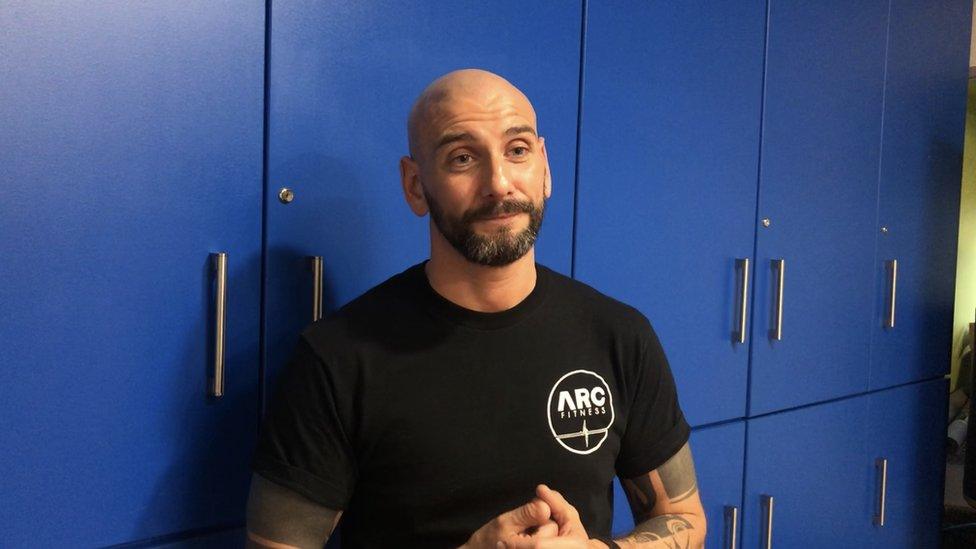
Gary Rutherford has merged his experiences of addiction, personal training and mental health nursing
"The first conversation I remember about having a problem with alcohol was when I was 17," says Gary.
"That just continued when I went to university where I had no ties with family due to being in another country.
"I had freedom, but it spiralled and snowballed.
"I thought I had reached the end point so many times. I had broke my back in a car accident, I lost part of my thumb, I had dislocated a shoulder, I had broken ribs.
"Even the breakdown of my first marriage wasn't enough to bring the change around and neither was my first time in rehab."
Starting sobriety
His first four-week stint in a rehabilitation centre was in 2009, but he relapsed shortly after leaving.
It wasn't until he made the decision himself to go to rehab in Armagh for three months that things began to change.
"I think the biggest hurdle for me, was that I had to decide that I didn't want to drink," he said.
"I'd been told: 'No, you can't drink.' But here's the thing - it's like a diet.
"If somebody says you can't have chocolate, it's all you want, and it's the same for alcohol.
"I was resentful, so I had to make that switch in my mind that I could drink at any point, but I choose not to."
Back to the books
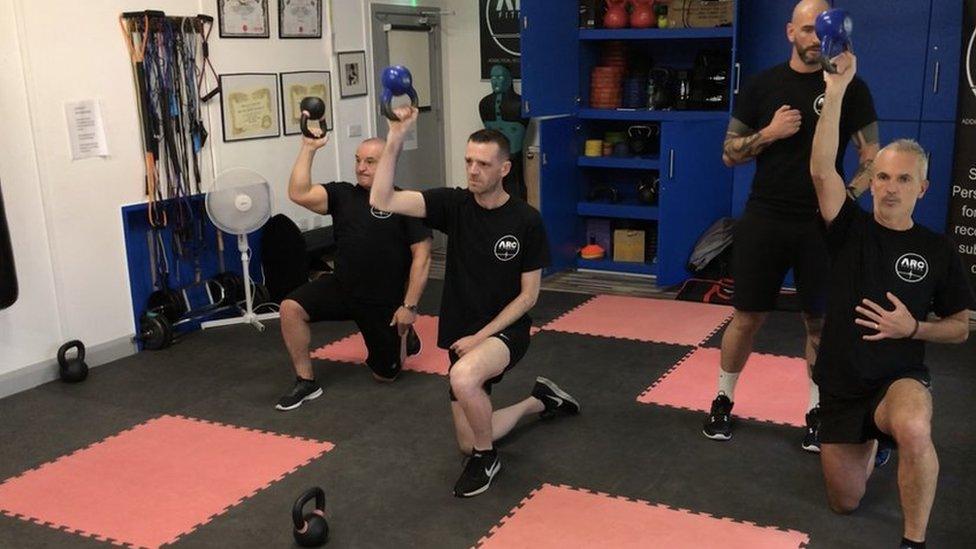
"They're doing really well in recovery and it's normalising it for them," says Gary Rutherford
Gary wanted to use his own experience of recovery to help others.
He worked at the Western Health and Social Care Trust for more than three years before taking on his current role as an addiction nurse therapist.
He sat his exams and took up running.
"A friend suggested I try it and I hated it. I remember the first session because I was sick, but even though it was an uncomfortable experience, I kept going back because I was around people that didn't drink.
"They chose to have a healthier lifestyle. So it suddenly normalised no longer being a drinker."
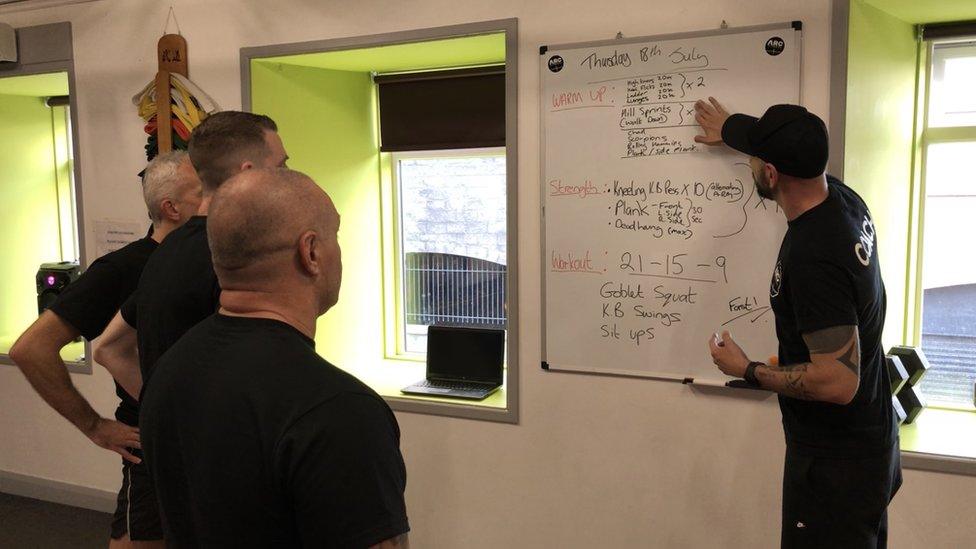
Each session consists of a warm-up, strength training and a high intensity workout
After running five marathons in 18 months, he decided it was time to try something new, which is when CrossFit and strength training became his passion.
That passion led him to gain personal training qualifications.
"I always had a desire to marry my love for physical activity and my career in nursing because I have personally felt those benefits," he said.
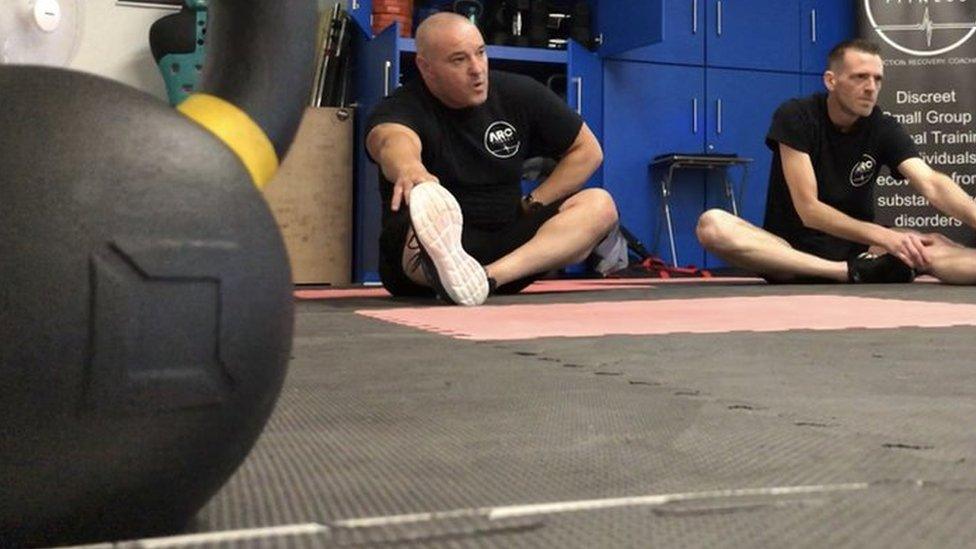
ARC Fitness has been working with Queen's University, Belfast, to help shape the six-week programme
Gary and his six clients have just completed their first block of the programme.
They meet in the evening twice a week, start with a warm-up, then move onto strength and weight based exercises and finish up with high-intensity interval training.
A one-to-one session is also offered to his clients to address their private goals.
Sense of community
Scott Reid joined the programme after relapsing when he had left a rehabilitation centre in London.
"I felt alone," he said.
"But once I started this, I felt that somebody was trying to help me. In fact, Gary was the first person I told I had relapsed because I was too embarrassed to tell my family.
"A group of six strangers came together and left as friends that understood one another. So if one of us felt down or was struggling we could pick up the phone or go out for a coffee or a walk or something."
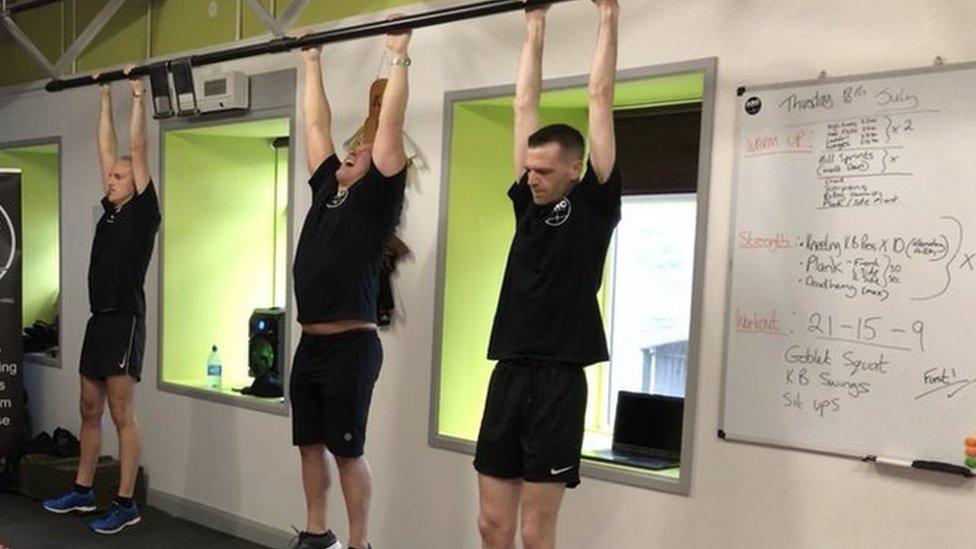
"I had an addiction for so long, so there is a lot of stuff to fix," says Kevin Canning
Kevin Canning's addiction to drugs and alcohol began at the age of 11.
"The drinking was seven days a week and the drug taking was seven days a week.
"It was either rehab or death, the choice was literally do or die."
He entered a six-week programme at the Northland Centre in Derry in 2017 and remained sober, but relapsed in February, before beginning to train with Gary.
"I'm 37, and this was the first time I'd set foot in a gym.
"But it's not all about the fitness side of things, because now I have a lot more support from these guys."
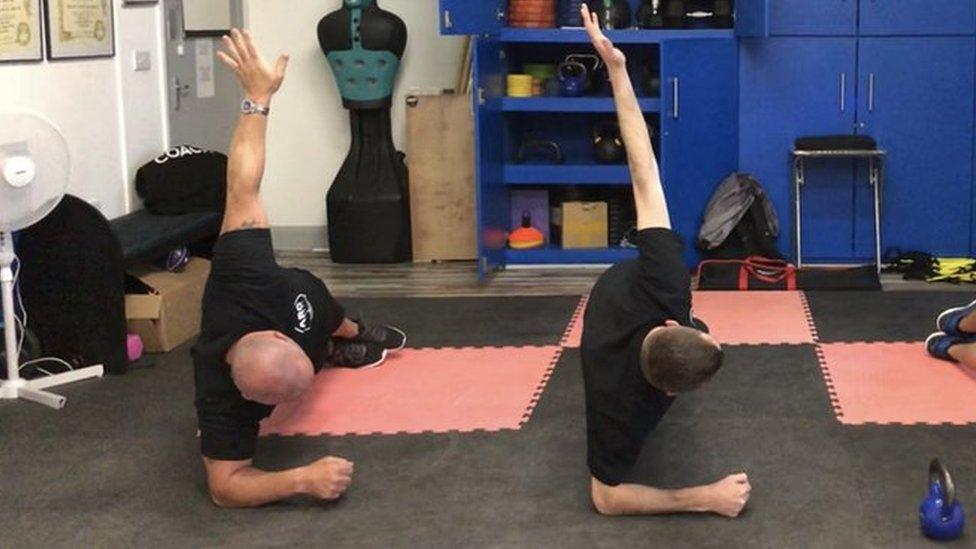
"Addiction is complicated. Relapse happens," says Gary Rutherford
Gary said he is trying to give people hope.
"I want to find the strength in that person and draw it out. I want to make that person feel like a person, empower them, make them thrive, encourage them.
"Somebody found the strength in me to let me see that I was actually okay, there was hope and I was worth something - it saved my life."
If you have been affected by any of the issues in this story, you can contact the BBC Action Line